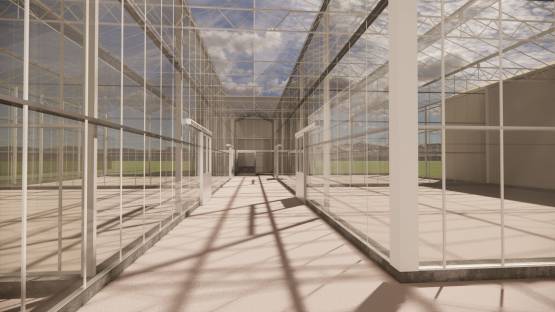 The International Atomic Energy Agency’s (IAEA's) planned new laboratory greenhouses have recently received pledges of €5.5m from 12 countries. The greenhouses are part of the Agency’s ReNuAL2 project to upgrade its nuclear applications laboratories in Seibersdorf, Austria. The contributions were provided by Algeria, Australia, Germany, Jordan, Kuwait, Malaysia, the Netherlands, South Korea, Slovenia, the United Arab Emirates, the UK and the USA. This met the target of estimated funding needed for construction of new laboratory greenhouses, which are necessary for the Agency’s work in plant-breeding, food safety, soil and water management and crop nutrition. The greenhouses were the last major ReNuAL2 project element requiring funding.
The International Atomic Energy Agency’s (IAEA's) planned new laboratory greenhouses have recently received pledges of €5.5m from 12 countries. The greenhouses are part of the Agency’s ReNuAL2 project to upgrade its nuclear applications laboratories in Seibersdorf, Austria. The contributions were provided by Algeria, Australia, Germany, Jordan, Kuwait, Malaysia, the Netherlands, South Korea, Slovenia, the United Arab Emirates, the UK and the USA. This met the target of estimated funding needed for construction of new laboratory greenhouses, which are necessary for the Agency’s work in plant-breeding, food safety, soil and water management and crop nutrition. The greenhouses were the last major ReNuAL2 project element requiring funding.
“Every day, IAEA experts at our Seibersdorf labs work intensively towards finding solutions to global challenges, through the use of nuclear techniques. The planned greenhouses are critical to meeting member states’ requests for training, research, and services to strengthen their climate resilience and food security,” said IAEA Director General Rafael Mariano Grossi. “The contributions towards the ReNuAL2 project bring us tantalisingly close to completing the modernisation.”
At an event held to mark the contributions, Grossi highlighted the importance of the project’s several consistent repeat donors, and presented the first-time donors to ReNuAL2 with a national plaque, to be placed on a commemorative donor display at the IAEA headquarters in Vienna. The first-time donors to the project are Algeria, Jordan, Malaysia, the Netherlands and the UAE. To date, 33 countries have pledged funds towards ReNuAL2.
ReNuAL2 was launched in 2020 to finish the modernisation of the IAEA’s Nuclear Applications laboratories in Seibersdorf, completing an effort that began in 2014 and which over the following six years delivered three major new laboratory facilities. The project entails the construction of a new building to house three laboratories: Plant Breeding & Genetics, Terrestrial Environmental Radiochemistry, and Nuclear Science & Instrumentation. It also includes refurbishment of the Dosimetry Laboratory, and replacement of the Agency’s ageing greenhouses. Construction of the new building began in October last 2022, and major construction is due to be completed by the end of 2024. The latest joint contribution leaves only smaller, non-construction costs to finish the estimated €42.3m project still to be funded.
For over 60 years, the IAEA has, through its laboratories in Seibersdorf, trained thousands of scientists in nuclear techniques, helping to address some of the world’s most pressing challenges. At the site’s eight nuclear applications laboratories, experts conduct applied research and provide training and technical assistance to countries in the areas of human health, food and agriculture, environment and climate change.
Image: The IAEA's planned new laboratory greenhouses are necessary for the Agency’s work in plant breeding, food safety, soil and water management and crop nutrition (courtesy of IAEA)



